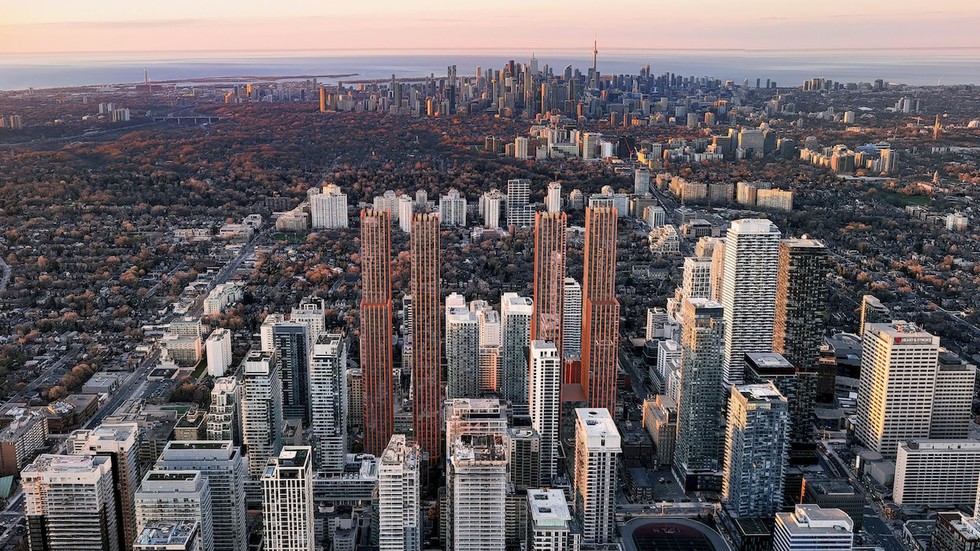Canada's Office of the Superintendent of Financial Institutions (OSFI) has unveiled tougher mortgage financing rules that could have a dramatic impact on the home-buyers’ market in Toronto and surrounding area.
“Certain people who are at the top of their borrowing are going to be forced to borrow less,” says Brendan Powell, real estate broker and co-team leader of the BREL Real Estate Team in Toronto.
This latest effort to cool the housing market requires all prospective home buyers — even those with a down payment greater than 20 per cent — to undergo a stress test before the bank will grant a loan. Buyers with uninsured mortgages will need to qualify at either two percentage points over the contractual rate negotiated or at the five-year benchmark interest rate, whichever is greater. As a consequence, Canadians will be able to borrow 15 per cent to 20 per cent less than they are used to.

“The reality is most people aren't borrowing to their absolute max as it is and most people don't realize that they're already stressed tested, so depending on what your mortgage is like, you may have already been stress tested.
“It's not as big as it sounds and yet it's still a pain in the butt and it does feel like they're piling on with interest rates going up and the Fair Housing Plan,” says Powell.
The measures were first tabled in July amid rapid home value appreciation in the Greater Toronto Area and surrounding communities in Southern Ontario.
Since the initial proposal in the summer, The Bank of Canada raised its benchmark interest rate twice and Ontario's Fair Housing Plan added a 15 per cent foreign buyer's tax.
Other rules require financial institutions to enhance their loan-to-value limits and adjust them according to changes in the housing market and economy. Financial institutions are also prohibited from arranging a mortgage or other lending arrangement that circumvents its maximum loan-to-value ratio, other underwriting requirements or the law.
“They're closing the door on mortgage bundling where you have one mortgage with a company like Home Trust at 65 per cent loan-to-value and then you go to another lender for the remaining 15 per cent loan-to-value,” says Kim Gibbons, a mortgage broker with Mortgage Intelligence in Toronto. “What that's going to do is push more people into private lending and unfortunately, higher rates and higher fees.”
Here's how your family would fare
Mortgage comparison website RateHub.ca calculates that a family with an annual income of $100,000 with a 20 per cent down payment at a five-year fixed mortgage rate of 2.83 per cent amortized over 25 years can currently afford a home worth $726,939. But under the new rules, they need to qualify at 4.89 per cent. Now they can only afford a home worth $570,970 — a difference of $155,969.
At two per cent above the contractual rate, RateHub.ca calculates that a family with an annual income of $100,000 with a 20 per cent down payment at a five-year mortgage rate of 3.09 per cent amortized over 25 years can currently afford a home worth $706,692. Under the new rules, they need to qualify at 5.09 per cent. Now they can only afford a home worth $559,896 — a difference of $146,796.
First-time home buyers
Real estate experts also predict these rules will especially hurt first-time home buyers who are just entering the market.
“The benefit of this move — which may dampen price increases in some markets — is an increased cushion and protection for mortgage lenders in case of a large market correction,” says Henry Balaban, owner of Sutton Group-Associates Realty Inc. “On the flip side, it will hurt buyers; especially entry-level buyers; who are already paying higher prices and are competing with cash buyers who rely on foreign money.”
Meanwhile, these adjustments, which take effect Jan. 1, 2018, are coming at a time when mortgage delinquencies are very low in Canada and people still hold a lot of equity in their homes.
“What OFSI wants to do is cool the market, but they might just halt it and it won't change the supply and demand in Toronto because there's only so much land and not enough houses here,” says Gibbons. “Demand will always be here, so I can't see housing prices going down 25 per cent. Capital Economics forecasted that five years ago and were completely wrong.”





















